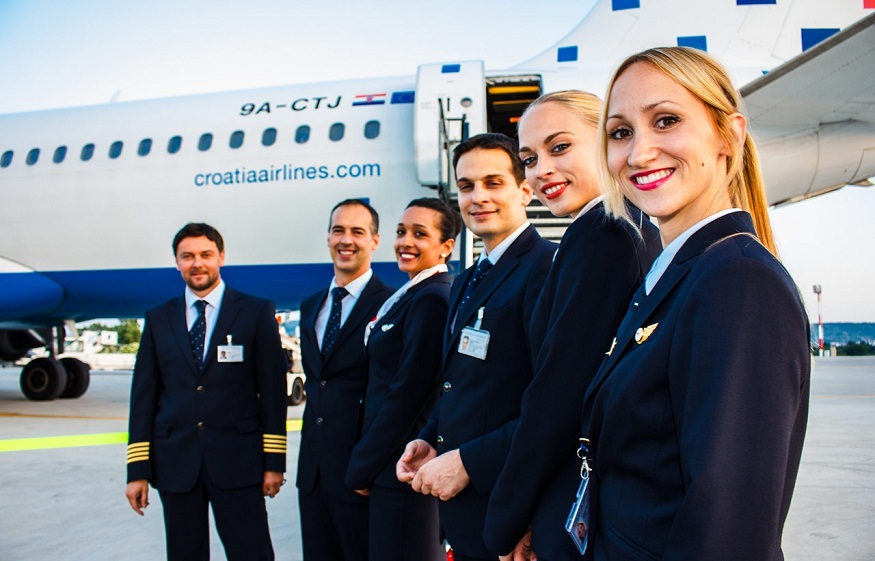Airport jobs: working in the air while staying on the ground
3 min read
Air transport continues to increase, for passengers or freight. Consequences: airports are centers of activity where many professions, known or unknown, are exercised. Calling, security, freight or maintenance jobs… Overview.
It is 6 o’clock in the morning at Paris-Charles de Gaulle, and the sun has not yet risen when Jonathan enters the terminal. The young station attendant consults his schedule: he must board a flight for Dakar.
In the car park, other employees head for the offices, the freight areas or the maintenance hangars where a few mechanics have provided night duty near the tracks. A little later, the sellers open the shops and the security guards take up their post to inspect and screen passengers.
A little further, in the business area of Roissypôle, Claire rushes into the offices of the Air France headquarters. The student-engineer landed THE end-of-study internship of her dreams there, at the “ operations control center “, where the company’s 1,500 flights are managed every day. beautiful places to live in Spain .
A dynamic environment but with constraints
An airport thus offers the spectacle of an incessant ballet where goods, passengers and vehicles cross and intersect on arrival or departure. And in this center of activity – we speak of a “hub” – dozens and sometimes hundreds of people are at work on very different professions, activities and missions .
There is nothing to do between the mechanic specializing in avionics (aircraft electronics) and the saleswoman of cosmetic products or the young executive specializing in setting prices in the airline company. They have neither the same skills nor the same level of training.
However, the airport environment imposes on everyone certain constraints or particularities. It is better to know them if this universe attracts you:
- Most occupations require a certain level of English , and in passenger relations occupations, proficiency in other languages is an advantage.
- Many jobs require the ability to work day and night in staggered hours , including Sundays and public holidays. Employers therefore often require that their employees be motorized , especially since airports are always on the outskirts.
- Then, for security reasons, all people working in the airport must have a clean criminal record and other approvals are necessary if you have to work in a “reserved area” for passengers and prohibited to the public
Airport professions: four major sectors
The airport creates a variety of jobs
Alongside the multiple peripheral professions encountered at an airport (shops, restaurants, etc.), four sectors bring together the majority of these ” stopover professions ” :
– commercial careers and customer relations,
– professions linked to the runway and traffic,
– freight and logistics
careers, – security careers.
The following paragraphs describe some professions in each sector to give you an idea. But in reality, the outline of trades can vary from one employer to another or from one site to another. In a small regional airport, an agent will be able to perform both passenger reception and
Internal training is also highly developed and you can gradually acquire qualifications or skills to change jobs or progress.
Be aware, however, that recruitment opportunities may vary depending on seasonality, economic and political conditions. To adjust, employers resort a lot to temporary work and fixed-term contracts .
And then, technological developments are also changing services: airports will be increasingly connected and certain tasks will be automated. This of course changes the professions and skills sought.







